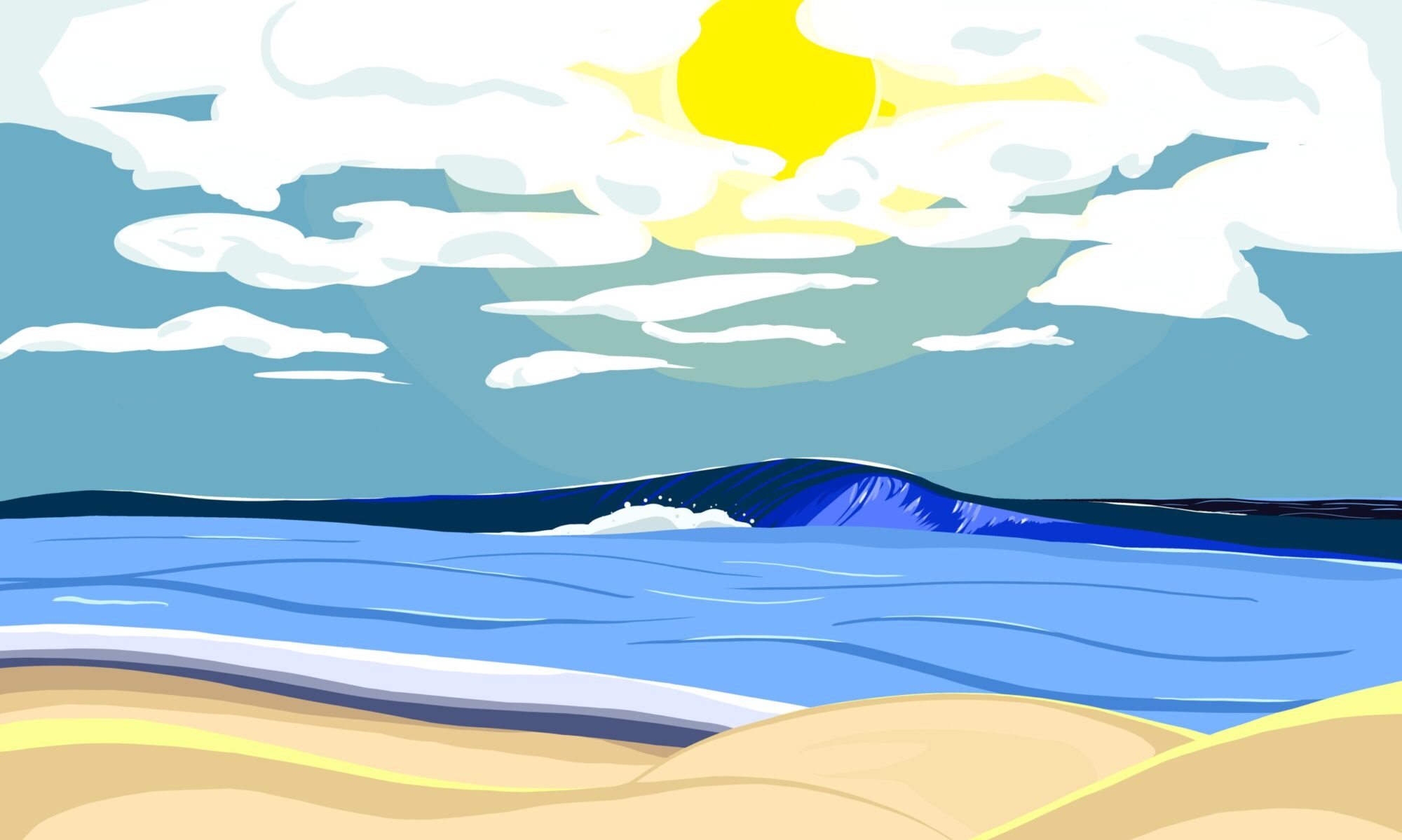Before we begin this week, I would like to share a quote that relates to the conversation about knowledge last week that I read as part of my Introduction to Psychology course:
“[We are] bombarded every second by sensations, emotions, thoughts … nine-tenths of which [we] must simply ignore. The past [is] a roaring cataract of billions upon billions of such moments: Any one of them too complex to grasp in its entirety, and the aggregate beyond all imagination…. At every tick of the clock, in every inhabited part of the world, an unimaginable richness and variety of “history” falls off the world into total oblivion” (Myers 275).
This week I want to talk about risk.
Note to reader: this week jumps between many ideas of a similar theme. This week I am putting in one post many ideas that were formed independent of the others–a “salad of thoughts.”
I believe that… I know that people give too much power to chance. We are all fools, neither ever knowing what we are truly wishing for or knowing the reality of what it will take to get us to our wild fantasies. I am seeing this mirage of luck all around me.
I have discovered that we are all near a metaphorical ledge. For a long time I sat on the edge. Partially aware of the dangers then, I can better see the existential threat that waits at the bottom now. Only a handful of mistakes or happenstance events could have catapulted my life in an entirely different direction. I was not born into the financial or social security that allowed me to trip or stumble. Too many people are handed doomed realities before they can prepare, before they are even aware. Awareness seldom comes in the darker moments. It is very dangerous. How many strong men and women have been lost because of their lack of knowledge, because they were never told that behind them was a cliff? I am fortunate to have distanced myself from the ledge; However, I do not have the infrastructure to ignore the dangers and live my life carelessly. Complacency would bring me right back down and off. I am looking to distance myself from the ledges in my life and put up the appropriate boundaries. This is a complicated process because there are many ledges in the world, and some of the most dangerous ones conceal themselves. Identify these traps in your life because without action we all creep closer to falling everyday. Time is cruel. I believe happiness is found in infrastructure. I believe there is great happiness in security. When I get there, I will let you know.
Related to the previous idea is the idea of having safety nets in your life: savings accounts, friends, credibility, education, fame, companionship, etc. We can potentially weigh the risk of the decisions we make by how many of those safety nets could be destroyed versus what could be gained. Changing careers might only cut through savings, but embezzling money could land you in prison. I do not need to say this, risks can be minor or major but all have real consequences.
This has recently been on my mind because I am beginning down a path that has the risk of being interrupted or completely destroyed by life events. If something major were to happen now, since I am working in a narrow window and with tight tolerances, it might not be recoverable. I am being dramatic, but a major life event could seriously set me back. I should not stress paranoia because this is an unavoidable caveat of life. I know in my heart that I am getting closer to my ambitions and nothing will stop my pursuit.
I am applying to university, and I have previously been fixated on admission acceptance rates. My mind naturally correlates percentage with chance, but in this context, chance is mostly irrelevant. These numbers represent nothing but an expectation. These are not odds and the surly do not represent any one person’s chance of admittance. These numbers represent a difficulty, a standard to reach. The hard reality is that you either exceed expectations or are substandard. This perspective is not limited to university acceptance rates; expectation variables are all around us.
Foolishly, I underestimated expectations once before. Never again will I allow myself to carelessly fall short. If I am going to be rejected, I need to know that my commitment was ceaseless, that I lost because there was someone better. I will find my place to be better, but luck will never guide me there. In the past, I have had my perspective on risk, probability, luck, and unfortunate events all mixed together. In our trying world, every outcome, every random event, has a probability. Nothing is ever absolutely guaranteed or off the table. The secret to creating the future before it happens is by controlling as many variables that go into the probabilities that you desire and maximizing the probability of those outcomes. This is ultimately what envisioning a future, making goals, and taking actions toward goals leads us to do. This also applies to the little things in life. If you never maintenance your car, the probability that it will break down increases with every drive. If we constantly neglect the small variables in our lives, it can appear as if we are unlucky, when in reality the fault lies in our actions (These actions affect us whether we are conscious of them or not). In my online psychology class, I listened to a great video by psychologist Albert Burdura where he talked about happenstance:
“These experiences showed me that there’s a lot of fortuity in our life paths. Psychology avoids fortuity and chance like the plague. It really screws up our prediction models and so on. But I felt that we should be able to bring some science to bear on the fortuitous character of life.
Now, psychology can’t predict fortuitous events. But psychology should predict that once they occur, are they going to leave you untouched? Are they going to influence you? Or are they going to branch you into entirely new directions in life? So I set up a conceptual scheme as to predicting the effect, depending on your own personal attributes, and also the nature of the inaugurating environment. I was bringing in some sort of novel features into psychology.
There are two ways in which you can exercise some influence on the fortuitous character of life. One, you can make chance happen by leading an active life and exposing yourself to a lot of different ideas. And the second, you can make chance work for you by developing your interests, your competencies, and other personal characteristics so when a fortuitous event occurs, you can take advantage of it” (Albert).
Bandura’s philosophy can be likened to the quote, “luck is what happens when preparation meets opportunity” – Seneca.
I don’t believe in luck anymore, and I am going to prove it by beating the “odds” and finding the success I seek… As I write these words, I get an uneasy feeling in my core. I feel like the world is going to make me eat my words, and I am going to choke on them. That is the shortcoming of young confidence… but I can no longer conceive my confidence as arrogance, inexperienced, privileged, untested, or phony. I know that I am competent and work diligently; I will not succumb to imposter syndrome and doubt.
Risk is delicately interwoven with time. Time is both conceptually and metaphorically interesting. Our universe is defined by it yet we as people can only perceive it so linearly. The bond between man and time leaves us to relinquish freedom into camps of finiteness (limitation of the time of life), absolute or limited destiny (we only have one experience of life. If we have free will, I can not know), and perceived luck (fundamentally, what causes randomness in our world I am uncertain of, but luck as we conceive it is not concrete. Luck is just the outcome of many complicated events. Too many to even formulate). In the future, I will extract more from this idea, but I will leave this as gum to mentally chew until I next mention time. I love time!
Speaking of time, this is it for the week. Don’t you just hate time!
As always, this has been Tristan from HQ. Till next week!
I will leave you with a quote from Siddhartha as it relates to destiny, time, and the future:
“‘Yes, Siddhartha,’ he spoke. ‘It is this what you mean, isn’t it: that the river
is everywhere at once, at the source and at the mouth, at the waterfall, at the
ferry, at the rapids, in the sea, in the mountains, everywhere at once, and that
there is only the present time for it, not the shadow of the past, not the shadow
of the future?’
‘This it is,’ said Siddhartha. ‘And when I had learned it, I looked at my life,
and it was also a river, and the boy Siddhartha was only separated from the
man Siddhartha and from the old man Siddhartha by a shadow, not by something real. Also, Siddhartha’s previous births were no past, and his death and
his return to Brahma were no future. Nothing was, nothing will be; everything is, everything has existence and is present’” (Hesse 91).
“Oh, was not all suffering time, where not all forms of tormenting oneself and
being afraid time, was not everything hard, everything hostile in the world
gone and overcome as soon as one had overcome time, as soon as time would
have been put out of existence by one’s thoughts?” (Hesse 92).
Citation
“Albert Bandura.” Performance by Albert Bandura, Macmillan Learning, Worth Publishers, 2022, https://achieve.macmillanlearning.com/. Accessed 29 Oct. 2023.
Myers, David G., and C. Nathan DeWall. Exploring Psychology. Worth Publishers, 2022.
Hesse, Hermann. Philosophy.Lander.Edu. Edited by Lee Archie and John G. Archie, 1.0 Edition ed., Hermann Hesse’s Siddhartha: An Open Source Reader, https://philosophy.lander.edu/oriental/siddhartha.pdf, Accessed 1 Oct. 2023.


